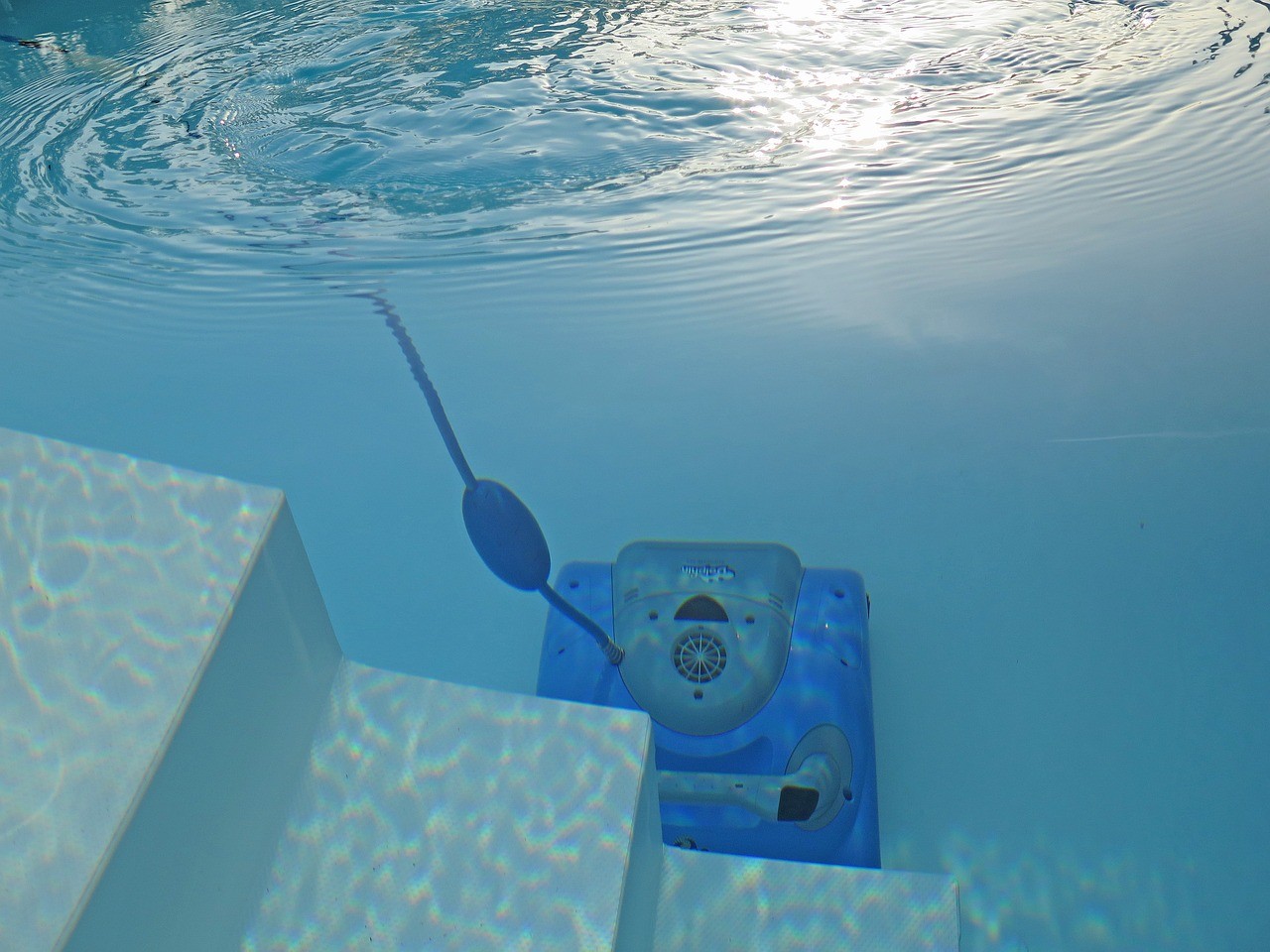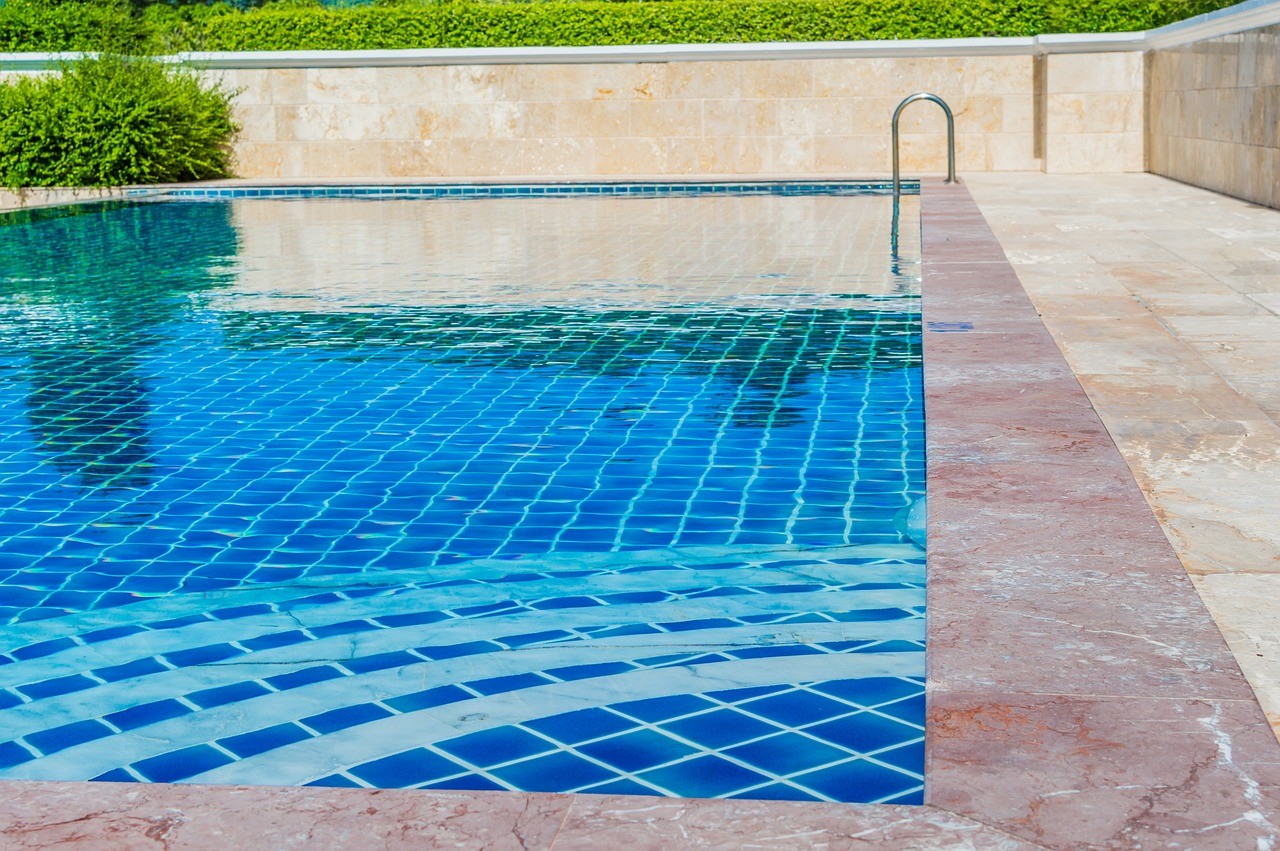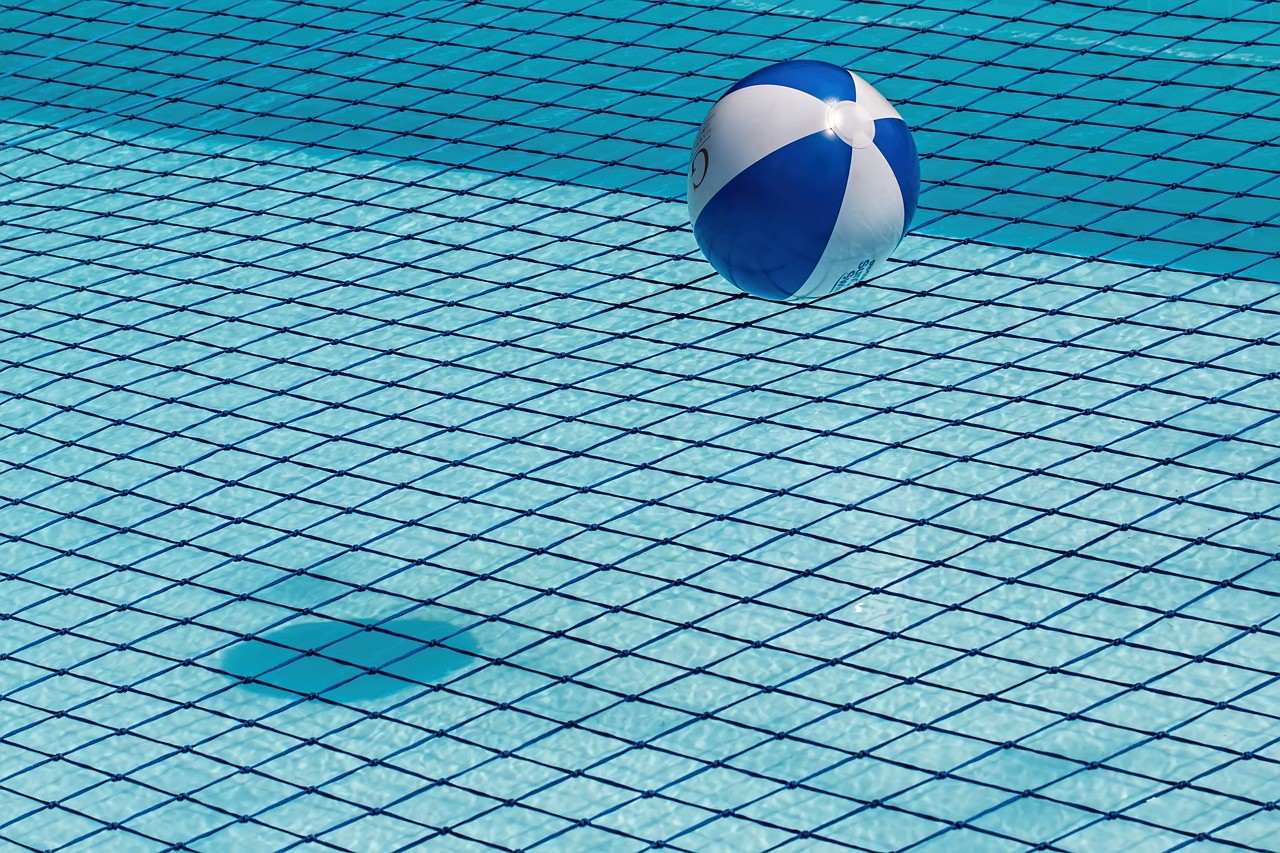In order to enjoy your pool to the fullest and during all months of the year, it is important to invest in a heating system for it. Without heating, your pool will only reach max temperatures of about 25°C, even on hot days.
Most commercial pools are heated to between 26°C and 30°C, so the water can be quite uncomfortable without an external heating mechanism.
It can be difficult to choose the best heating mechanism for your pool, however, there are many factors one has to take into account in order to make the best decision.
These include the type and size of the pool, how often you wish to swim, and the time of year. To help you make an informed decision, outlined below is a brief description of some of the most popular pool heating systems.
How to Heat a Pool
1. Gas Pool Heater
Gas pool heaters use gas or propane to heat a pool. This works because it allows the water to be sucked through a filter, and subsequently, a heater before it is released back to the body of the water when it has reached the desired temperature.
The gas or propane is burned in the combustion chamber of the heater, allowing it to generate heat which is transferred to the water. These heaters are ideal if you do not use your pool often, since they can be costly to keep running all of the time.
They are also very efficient when it comes to heating up pools, as they can heat the water in a very quick amount of time. Unlike some other heating methods, the gas pool heater can maintain any desired temperature regardless of the outside weather conditions.
Before buying a gas pool heater, however, you should size your pool to determine the best size heater for it. It is best to have a qualified pool technician come in and determine this for you, as well as install your heater.
With proper installation and maintenance, gas pool heaters can last well over 5 years.
2. Solar Pool Heater
Solar pool heating is actually the most cost-effective way of using solar energy, making it extremely competitive with gas pool heaters. They are also easy to maintain and last a long time, however, installation prices may be steep at first. These work by using a solar collector, which draws in pool water to be heated by the sun.
A filter then removes impurities from the water before sending it to a pump, which circulates the water back to the pool. In some extremely hot climates, the solar collector can even be used to cool the pool water at night, if desired.
There are two types of solar pool heaters, glazed and unglazed. Unglazed solar collectors can be used at any temperature above freezing, and are usually made of heavy-duty rubber or plastic.
Glazed solar collectors can be used at temperatures below freezing and are usually made of copper and aluminum with an iron-tempered glass covering.
The materials used in glazed solar collectors also make them more expensive, however, they can capture and store solar heat more efficiently than unglazed models.
Before getting a solar pool heater, it is important to have a pool technician come to your pool and evaluate your solar resources, the correct system size, and the correct orientation of the system for maximum effect.
3. Electric Pool Heater
An electrical pool heater uses only electric energy to heat the water in your pool. This works because the system uses electrical resistance which transfers heat to your pool water as it passes through the system.
Electric pool heaters are not very efficient energy-wise, however, they are well-liked by most consumers considering they are fairly inexpensive, easy to operate and maintain, and easy to install.
They also are normally fairly compact, making them ideal for pools with limited space.
They are also well known for how quickly they can heat your pool up but are only recommended for small pools.
Despite this, electric pool heaters are expensive to operate (about $500.00 USD per month for every 1,000 ft. of pool surface area) and require an electrical upgrade during installation through a modification of the main circuit breaker.
4. Pool Heat Pump
Pool heat pumps are an energy-efficient way of heating your pool. Their efficiency depends on the outside temperature, so they are great for use in the warmer months. Heat pumps do not generate heat, but simply capture it and transfer it to the volume of water flowing through it.
This works by circulating water through a filter and then the heat pump, where a fan draws in outside air which is directed over an evaporator coil. Then, the liquid refrigerant inside the coil absorbs the heat from the outside air and gets turned into a gas, where it is compressed, increasing the heat.
This hot gas is then passed through a condenser which transfers the heat to the pool water as it circulates through it. Pool heat pumps are also great for heating pools evenly and are great for making sure your pool is as enjoyable in the fall and spring seasons as it is in the summer.
By redistributing heat, no energy is wasted. It is estimated that pool heat pumps save as much as 80% in energy pumps due to their efficiency. Before choosing and installing a pool heat pump, it is important to have a professional pool technician come in and evaluate your pool for the best heat pump.
5. Pool Blanket
Pool blankets are an inexpensive way of maintaining the heat levels in your pool. Not only can they help with keeping your pool’s temperature at a comfortable level, but they can minimize water levels, lower your electricity bill, and decrease the need for some pool chemicals.
Without a cover, pools can absorb a good amount of heat from sunlight, allowing them to have a temperature gain of about 0.7°F per hour.
This heat gain, however, is counteracted by evaporation. For every 1/4 in. of water evaporated from the surface of your pool, the temperature can drop by as much as 5°F.
Pool covers help counteract this by not letting any of the water from your pool evaporate. They work by capturing the energy of the sun and transferring it directly to your pool water, keeping it at an ideal temperature.
Although pool covers may not keep your water as warm as other methods such as gas and electric heating, it is very energy efficient and can save you a lot of money in energy bills.
6. Pool Heat Exchanger
Pool heat exchangers are another great, energy-efficient option when it comes to heating your pool. Not only can you reduce your air conditioning costs with this method, but you have the potential to heat your pool for free. By water cooling your air conditioner with a pool condenser, you can improve your air conditioner’s efficiency by up to 40%.
This works by allowing all the heat rejected from inside your home to be transferred directly to your pool water.
When your pool needs heat, the heat rejected from your air conditioner is instead transferred to the heat exchanger, which condenses it and transfers it directly to your pool water.
This method can save you a lot of money in energy costs, allowing your pool to practically be heated for free. These systems can normally be quickly installed by a pool specialist or HVAC technician, usually within one day.
Although this is a very efficient method of heating your pool, it can be costly to install at first. This is because most pool heat exchangers are made of titanium metal since it is effective at withstanding the corrosive effect of the salts, chemicals, and chlorine found in pool water.
Making the Decision
Making the decision about what type of pool heater you want to invest in can be tricky. However, it is hoped that this comprehensive guide to pool heaters has provided you with some insight in regard to pool heaters. There are many factors one has to consider before deciding what pool heater to get.
Therefore, it is important to have a qualified pool technician or pool specialist come in and evaluate your pool for your best options.
It is also important to consider how long of a season you want to use your pool for, what time of the day you want to swim, how many people use the pool on a daily basis, and whether or not you want the pool to add value to your property.
Pool heaters are typically categorized into three different categories: heat pumps, solar heaters, and gas heaters. Before diving into specifics, it is important to figure out which one of these categories best suits your needs. Once that has been decided, it is usually fairly easy to figure out what pool heater is best suited to your pool and desires.



